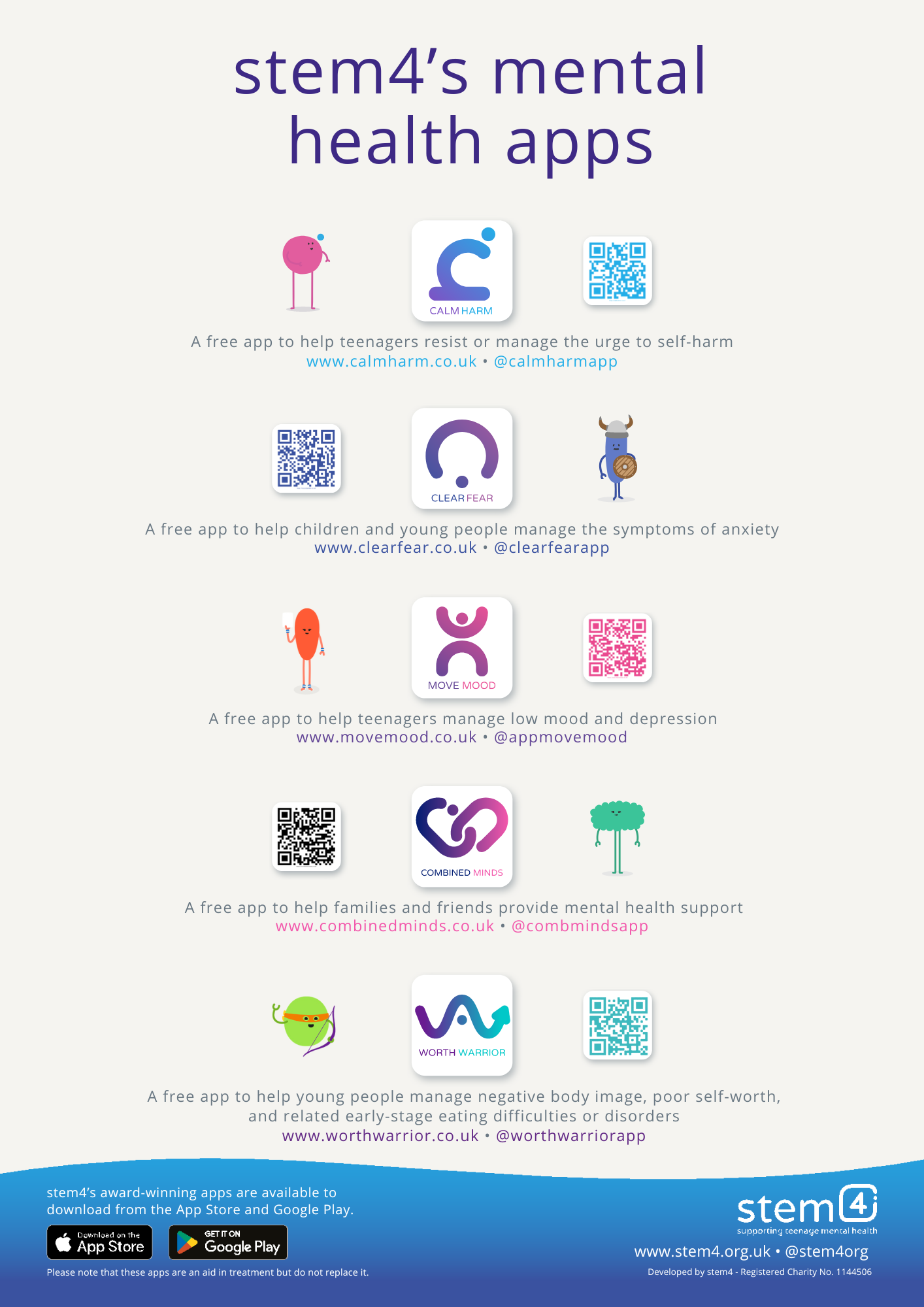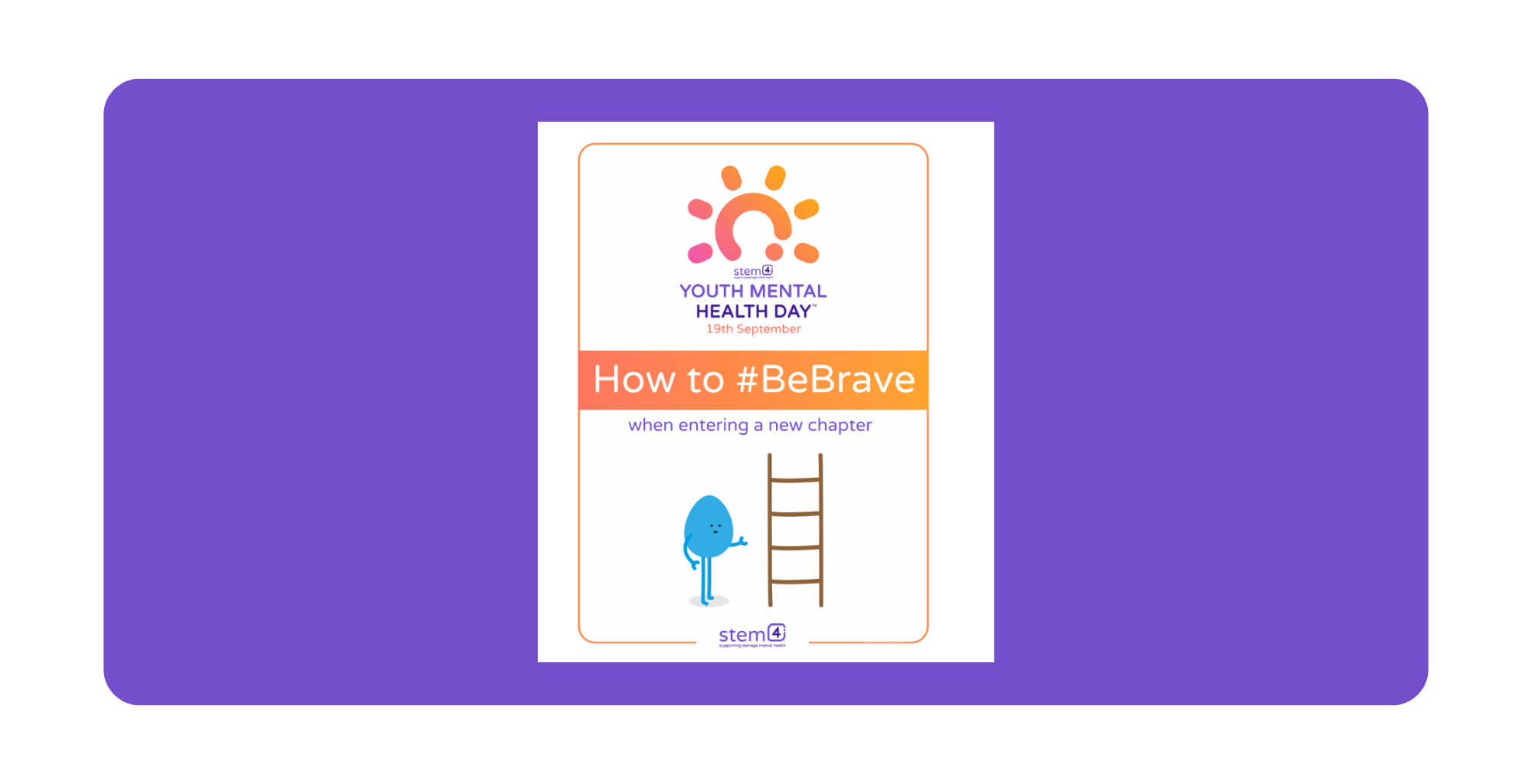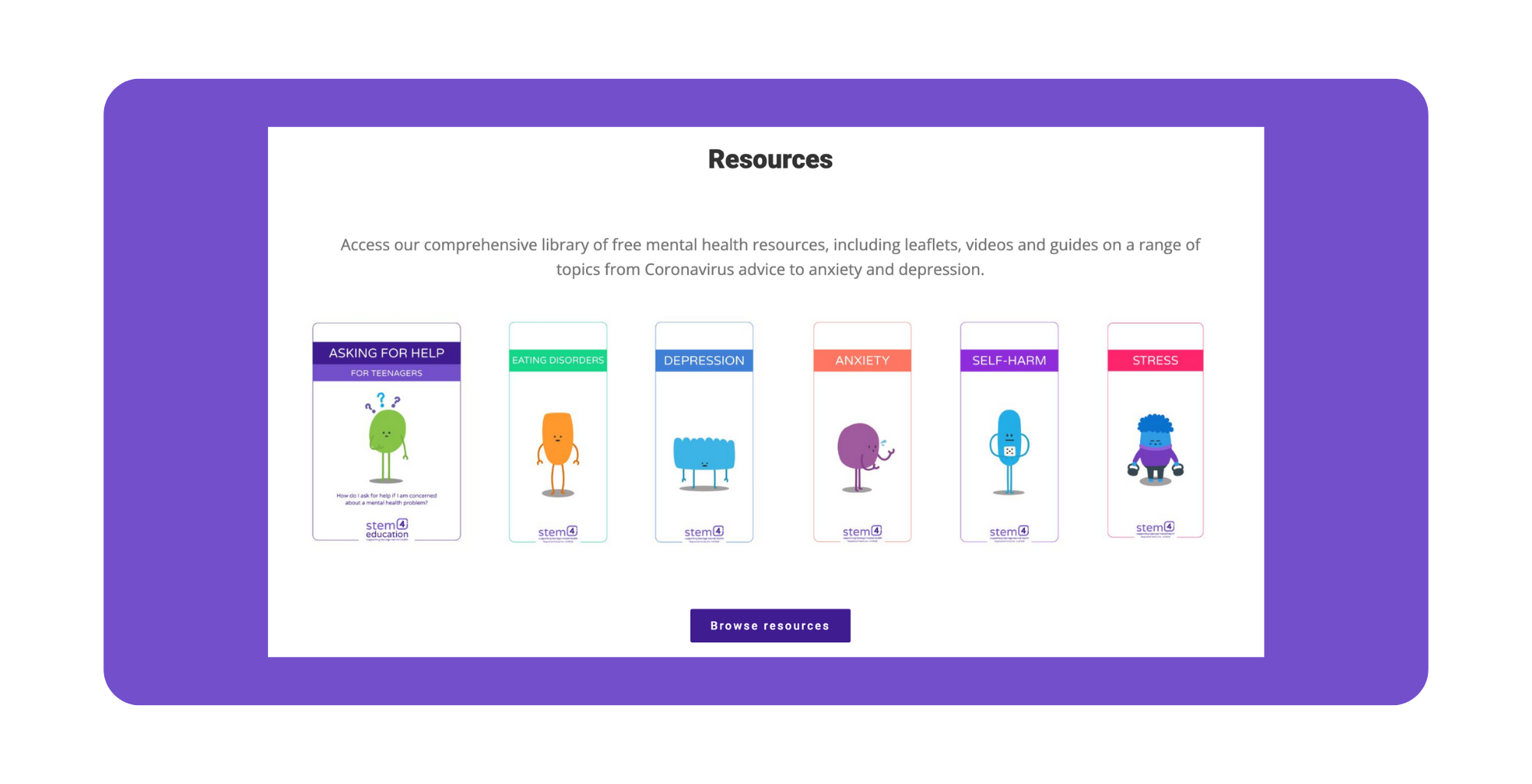Students heading to university this September have the highest rates of mental ill health. 14% of this new cohort missed 20 study days in the recent academic year due to mental health difficulties. stem4 says that universities need to be more intentional and organised in supporting the wellbeing of their students.
“The highest number of students with mental health challenges of any previous cohort”
NHS digital published statistics in November 2022 which indicates that 1 in 4 17-19 year olds in England had a probable mental disorder in 2022. This was a staggering increase from 1 in 6 in 2021.
Adding to this pattern of increasing rates of mental ill health, a 2023 survey conducted by Unite Students found that ⅓ of students hoping to go to university this September have experienced disruptions to their education due to their mental health. 14% of the 37,000 young people surveyed said they had missed up to 20 days of education due to mental health struggles. This rate increased for students who were neurodivergent or had a disability.
NHS digital published statistics in November 2022 which indicates that 1 in 4 17-19 year olds in England had a probable mental disorder in 2022. This was a staggering increase from 1 in 6 in 2021.
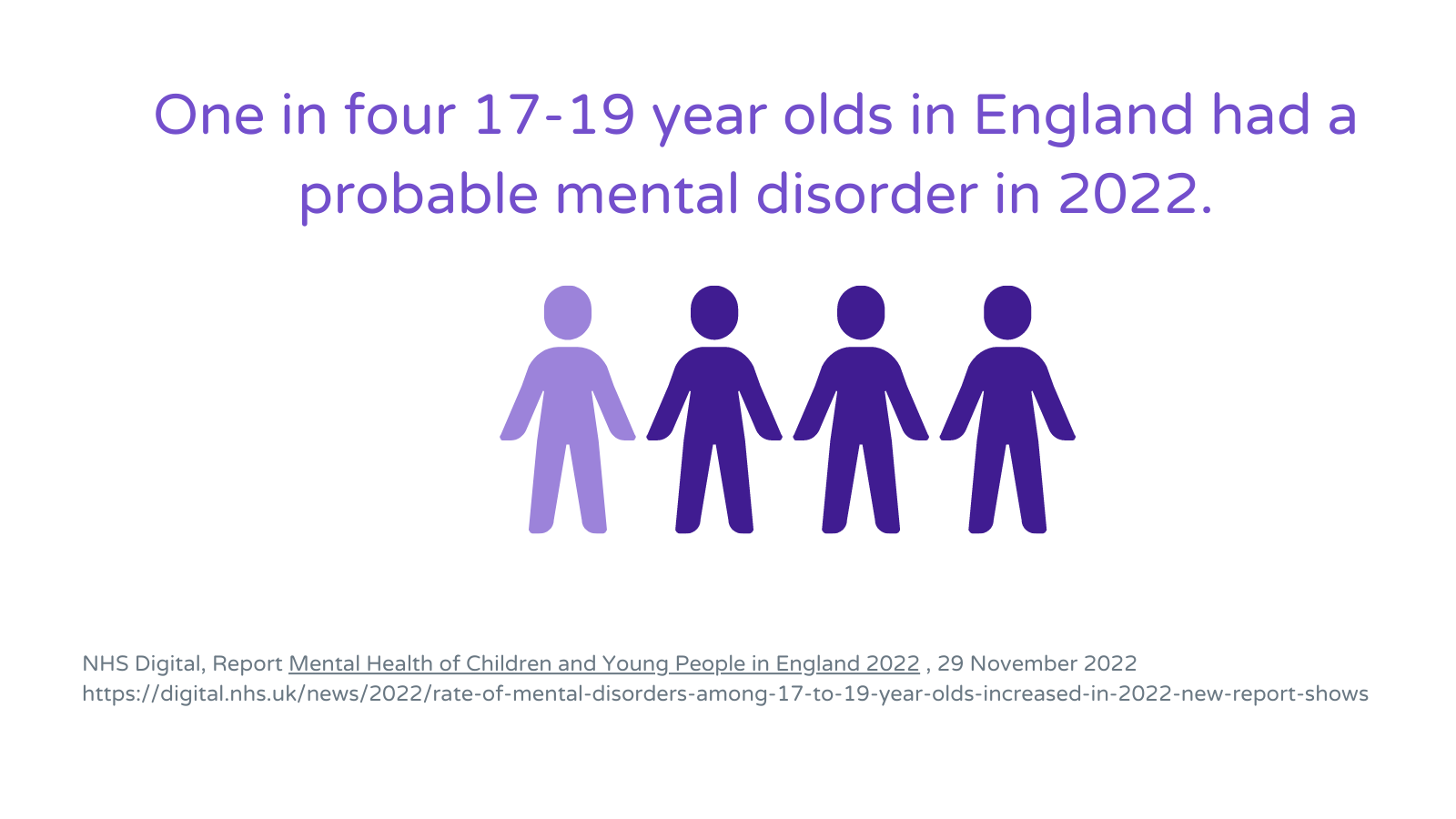
Adding to this pattern of increasing rates of mental ill health, a 2023 survey conducted by Unite Students found that ⅓ of students hoping to go to university this September have experienced disruptions to their education due to their mental health. 14% of the 37,000 young people surveyed said they had missed up to 20 days of education due to mental health struggles. This rate increased for students who were neurodivergent or had a disability.
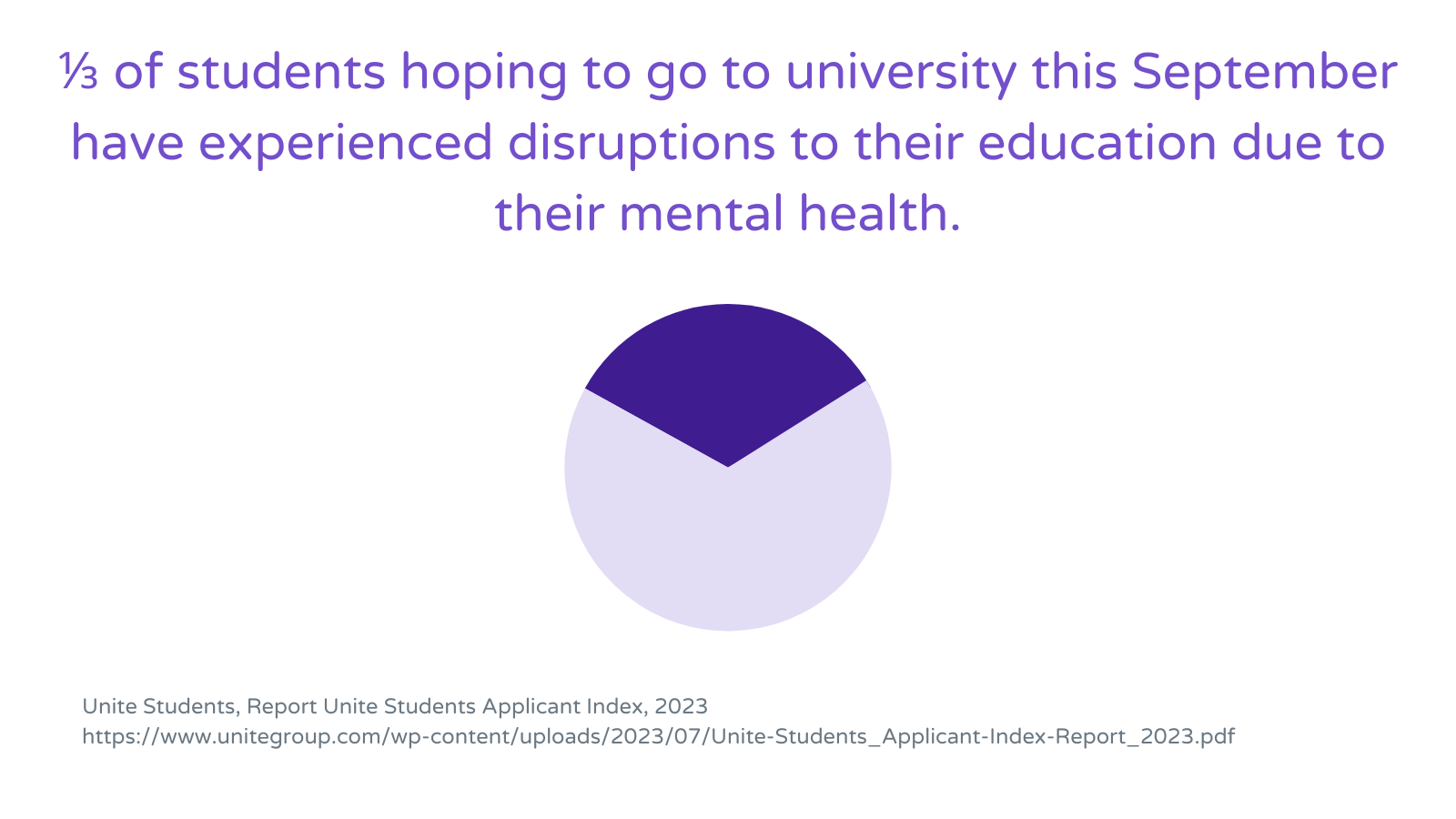
With universities fully aware of the rise in mental health difficulties among this fresher year, it is therefore crucially important that universities have evidenced-based strategies in place.
The mental health impacts for the graduating class of 2023
For students who have navigated the academic/social/emotional impacts of the pandemic and the cost of living on their university experience, the final nail in the coffin came as ‘marking strikes’ prevented many students from receiving their final grades. As these graduates try to enter an already unstable job market, they also face the added pressure of being unable to confirm their degree classification with future employers.
One recent Geography student shared with stem4 how this has impacted their mental health:
“Finishing University is already a stressful time, particularly when you are entering a jobs market with little to no graduate opportunities and the cost-of-living crisis. In April, the University announced a ‘marks’ strike which is still ongoing. We are still waiting for our results, with no indication of when to expect them. Needless to say, this has increased anxiety levels by a large extent.
“ It also takes any joy out of the graduation process, my cohort has suffered from COVID-19 and online learning. To get where we are today is an enormous achievement, it is very disappointing to finish what has been a very difficult 4 years with no degree.
“At my graduation, we were presented with a poem. I’d like the degree, thank you.”
It is clear that many of the people leaving university feel let down by the support which they have received from their university.
stem4 asked our Instagram followers “Did your university do enough to support your mental wellbeing?” to which 94% responded “No”.
Therefore, as universities prepare to receive their newest cohort of students who have the highest rates of mental health challenges, it is vitally important that they put measures in place to care for their students.
Clinical Psychologist and CEO and founder at stem4, Dr Nihara Krause commented “Psychological research indicates that young people with poor mental ill health tend to become worse at university as a result of transition and adjustment issues. This may mean deferral of attendance to seek treatment or drop out. Whilst many universities are working on promoting a whole-university approach to mental health as recommended in the ‘University Charter,’ which considers ensuring that mental health support of both students and staff permeates all aspects of a university’s work, there is further, urgent need for innovative and effective practice to assess and mitigate risk, provide early and effective intervention including safe digital tools and create further links with NHS mental health hubs for students. Special focus also needs to be placed on student ethnicity, sexuality, and disability.”
We have been encouraged by university wellbeing websites, such as those listed below, who have website pages dedicated to signposting their students to additional resources. We have been very pleased that some of our free, mental health apps have been recommended to students, especially as in the past quarter it has been this age demographic that have represented the highest number of our app users.

Young people need to be supported as they navigate this transition to university and more so than ever, and this can be done through early intervention resources being readily made available to young people.
Going to university can be an exciting experience, but it can also be difficult to face the new challenges that arise when you get there.
stem4 resources for university students
- We have 5 free evidence based apps for young people (Calm Harm– an app to help young people to resist or manage the urge to self-harm, Clear Fear- an app to help young people manage symptoms of anxiety, Worth Warrior – which was created to help young people manage low body image, Move Mood – an app to manage low mood and depression, Combined Minds- an app to help families and friends provide mental health support.)
- For our upcoming Youth Mental Health Day (taking place on the 19th of September) our CEO and founder, clinical psychologist Dr Nihara Krause (MBE) has created a guide with advice for young people on how to manage the transition to university. This may be of interest as a resource to share with prospective students.
- We also have clinically-informed resources on a range of mental health conditions such as anxiety, addiction, depression and many more.

Tip 1: Get to know your surroundings.
It’s normal to feel nervous about moving away from home and to a completely new place. Try to familiarise yourself with the area. It really helps to know your way around and to find places to buy food, wash your clothes, go for a relaxing walk, and so on.
Tip 2: Make an effort to connect with others.
An exciting part of going to university is the chance to meet new people and make new connections. Whilst this might be challenging, remind yourself that everybody is new and will have the same worries as you. Try and be brave by leaving your room, going to a shared space in your halls of residence, attending fresher’s events and lectures, or joining some societies. This all takes courage!
Tip 3: Take steps to self-care.
The start of university can be very busy and feel overwhelming at times. It’s important to remember to take steps to look after yourself. That means eating and sleeping well, signing up with the university doctor, and making time to do things that you enjoy by yourself, like reading, exercising, or going for a walk
Tip 4: Make your room comfortable.
Your new room at university can be a great place to relax, so make sure that it’s comfortable and suits you. It may help to have some of your favourite things from home in your room, especially if you’re feeling homesick.
Tip 5: Try not to judge things too soon.
Remind yourself that you have time to fully settle at university, and everything may not feel perfect straight away. If you are worried you may not like your course, or that you haven’t found the ‘right’ group of friends immediately, give yourself some time. Try to focus on what you are enjoying, and trust that you will soon feel more settled.
Tip 6: Keep in touch with friends and family.
It’s natural to miss your family and friends when you have left home for university. Remember that they are only a call or text away, and allow yourself to reach out if you want to chat. Settling into a new environment doesn’t have to mean leaving everything from home behind, and it may be comforting to feel close to your loved ones. Just make sure that you also give yourself enough time to make new connections.
Tip 7: Take things one step at a time.
Starting at university means facing a host of new challenges and responsibilities. Becoming independent is an exciting part of transitioning into adult life, but it doesn’t have to happen overnight. Start by writing a list of things that you aren’t sure you know how to do. This might be doing laundry, getting around a new town by yourself, or sorting out your student finances. Work through the list and try to learn these new skills. It’s okay to make mistakes and ask for help along the way
Young people need to be supported as they navigate this transition to university and more so than ever, and this can be done through early intervention resources being readily made available to young people.
Going to university can be an exciting experience, but it can also be difficult to face the new challenges that arise when you get there.



